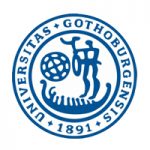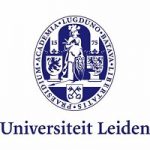项目介绍
Doctor of Philosophy in Materials Science and Engineering
Students who graduate from our program will be among the world’s leading experts in the areas of their dissertation research. They also will have the intellectual tools to move into new research areas as the field grows and develops.
During the first year of the PhD program, students are required to take five courses from our core curriculum, attend the weekly colloquium lectures to learn about cutting-edge materials science research, explore finding an advisor (which includes a weekly course hour), and enroll in some technical elective coursework.
Students are expected to find a research group to join before the start of the spring quarter in their first year. During the summer after the first academic year, students typically work intensely on research under the guidance of a professor in the Materials Science and Engineering Department or a professor from another materials-related department.
In the second year, students continue to take technical elective coursework and do research. Between October and January, they take a qualifying examination, which they must pass to be formally admitted to candidacy for a PhD degree. In the first part of the exam, students give a 20-minute presentation on their proposed area of dissertation research. A committee of professors, which includes the student’s advisor, then questions the student on the proposed topic for 20 minutes. Finally, the professors ask questions for 80 minutes on topics from the core curriculum. Students are expected to demonstrate an understanding of the fundamentals of materials science and to show that they can think clearly on aspects that are important for their research. Students who do not pass the qualifying exam can attempt it one more time in the spring quarter. It is not uncommon to pass one part but not both parts on the first try.
Once students pass the qualifying exam, they continue to take classes and do their dissertation research. Students are required to take 44 core, technical, and seminar units (approximately 18 quarter-long classes).
The final stage of the PhD program is to write a dissertation and pass the university oral examination, which involves giving a public seminar defending the dissertation and answering questions from a private panel of four professors. Most students complete the entire program in five years and receive several employment offers as they write their dissertations.
The university’s basic requirements for a PhD are outlined in the Graduate Degrees section of the Stanford Bulletin.
The PhD degree is awarded after the completion of a minimum of 135 units of graduate work as well as satisfactory completion of any additional university requirements. Degree requirements for the department are as follows:
| Courses | Units |
| Core Courses1 | 15 |
| MATSCI 211: Thermodynamics and Phase Equilibria | |
| MATSCI 212: Rate Processes in Materials | |
| MATSCI 213: Defects and Disorder in Materials | |
| MATSCI 214: Structure and Symmetry | |
| MATSCI 215: Quantum Mechanics for Materials Science | |
| Eight Elective Graduate Technical Courses2 | 24 |
| Materials Science Colloquia3 | 3 |
| MATSCI 230: Materials Science Colloquium (Autumn) | |
| MATSCI 230: Materials Science Colloquium (Winter) | |
| MATSCI 230: Materials Science Colloquium (Spring) | |
| Research | 75 |
| 75 Units of MATSCI 300: PhD Research | |
| Flex Units4 | 18 |
| MATSCI 231: Materials Science Research Advising (Finding Your Advisor) (Autumn) | |
| MATSCI 232: Ethics and Broader Impacts in Materials Science (Spring) | |
| 10 Units of Residency5 |
1All core courses must be completed for a letter grade and to qualify for the qualifying exam a GPA in the core courses must be 3.5 or higher.
2Eight, elective, technical courses must be in areas related directly to students’ research interests. Five courses must be in MATSCI, including one course in Characterization*
*The characterization course may be taken out of the department with the approval of the Director of Graduate Studies.
All courses must be completed for a letter grade.
3Materials Science and Engineering PhD students are required to take MATSCI 230 Materials Science Colloquium during each quarter of their first year. Attendance is required, roll is taken and more than two absences result in an automatic “No Pass” grade.
4Research units will very likely equal or exceed 75, so other courses may count here. This could include other engineering courses, MATSCI 400, transfer units, other university courses, up to 3 units of MATSCI 299.
5Students must complete Materials Science Research Advising during the Autumn of their first year. They will complete Ethics and Broader Impacts in Materials Science during the Spring of their first year. In addition, students complete at least 10 residency units. These course units may include MATSCI 300 Ph.D. Research, other engineering courses, MATSCI 400 Participation in Materials Science Teaching, or a maximum of three units MATSCI 299 Practical Training.
- Students must consult with the PhD Advising Team or their academic adviser on PhD course selection planning. For students with a non-MATSCI research adviser, the MATSCI academic/co-adviser must also approve the list of proposed courses. Any proposed deviations from the requirements can be considered only by petition.
- PhD students are required to apply for and have conferred a MATSCI MS degree normally by the end of their third year of studies. A Graduate Program Authorization Petition (in Axess) and an MS Program Proposal (PDF) must be submitted after taking the PhD qualifying examination.
- A departmental oral qualifying examination must be passed by the end of January of the second year. A grade point average (GPA) of 3.5 in core courses MATSCI 211-215 is required for admission to the PhD qualifying examination. Students who have passed the PhD qualifying examination are required to complete the Application for Candidacy to the PhD degree by June of the second year after passing the qualifying examination. Final changes in the Application for Candidacy form must be submitted no later than one academic quarter prior to the TGR status.
- Students must maintain a cumulative GPA of 3.0 in all courses taken at Stanford.
- Students must present the results of their research dissertation at the university PhD oral defense examination.
- Current students subject to either this set of requirements or a prior set must obtain the approval of their adviser before filing a revised program sheet, and should as far as possible adhere to the intent of the new requirements.
- Students may refer to the list of “Advanced Specialty Courses and Cognate Courses” provided below as guidelines for their selection of technical elective units. As noted above, academic adviser approval is required.
- At least 90 units must be taken in residence at Stanford. Students entering with an MS degree in Materials Science from another university may request to transfer up to 45 units of equivalent work toward the total of 135 PhD degree requirement units.
- Students may propose a petition for exemption from a required core course if they have taken a similar course in the past. To petition, a student must consult and obtain academic and/or research adviser approval, and consent of the instructor of the proposed core course. To assess a student’s level of knowledge, the instructor may provide an oral or written examination on the subject matter. The student must pass the examination in order to be exempt from the core course requirement. If the petition is approved, the student is required to complete the waived number of units by taking other relevant upper-level MATSCI courses.
| Advanced Specialty Courses |
|---|
| Biomaterials |
| APPPHYS 292 (Offered previous years, may be counted) |
| BIOPHYS 228: Computational Structural Biology |
| CHEMENG 260: Polymer Science and Engineering |
| CHEMENG 310: Microhydrodynamics |
| CHEMENG 355: Advanced Biochemical Engineering |
| ME 284A (Offered previous years, may be counted) |
| ME 284B (Offered previous years, may be counted) |
| ME 381: Orthopaedic Bioengineering |
| ME 385: Tissue Engineering Lab |
| ME 457: Fluid Flow in Microdevices |
| MATSCI 380: Nano-Biotechnology |
| MATSCI 381: Biomaterials in Regenerative Medicine |
| MATSCI 382: Bio-chips, Imaging and Nanomedicine |
| Electronic Materials Processing |
| EE 212: Integrated Circuit Fabrication Processes |
| EE 216: Principles and Models of Semiconductor Devices |
| EE 311: Advanced Integrated Circuits Technology |
| EE 316: Advanced VLSI Devices |
| EE 410: Integrated Circuit Fabrication Laboratory |
| MATSCI 312: New Methods in Thin Film Synthesis |
| Materials Characterization |
| APPPHYS 216: X-Ray and VUV Physics |
| CHEMENG 345: Fundamentals and Applications of Spectroscopy |
| EE 329 (Not offered in 2013-2014) |
| MATSCI 312: New Methods in Thin Film Synthesis |
| MATSCI 320: Nanocharacterization of Materials |
| MATSCI 321: Transmission Electron Microscopy |
| MATSCI 322: Transmission Electron Microscopy Laboratory |
| MATSCI 323: Thin Film and Interface Microanalysis |
| MATSCI 325 (Not offered in 2013-2014) |
| MATSCI 326: X-Ray Science and Techniques |
| Mechanical Behavior of Solids |
| AA 252: Techniques of Failure Analysis |
| AA 256: Mechanics of Composites |
| MATSCI 251: Microstructure and Mechanical Properties |
| MATSCI 353: Mechanical Properties of Thin Films |
| MATSCI 358: Fracture and Fatigue of Materials and Thin Film Structures |
| ME 335A: Finite Element Analysis |
| ME 335B: Finite Element Analysis |
| ME 335C: Finite Element Analysis |
| ME 340: Theory and Applications of Elasticity |
| ME 340A (Offered previous years, may be counted) |
| ME 340B (Offered previous years, may be counted) |
| ME 345: Fatigue Design and Analysis |
| Physics of Solids and Computation |
| APPPHYS 272: Solid State Physics |
| APPPHYS 273: Solid State Physics II |
| MatSci 201: Applied Quantum Mechanics I |
| EE 223: Applied Quantum Mechanics II |
| EE 228: Basic Physics for Solid State Electronics |
| EE 327: Properties of Semiconductor Materials |
| EE 328: Physics of Advanced Semiconductor Devices |
| EE 329: The Electronic Structure of Surfaces and Interfaces |
| EE 335 (Offered previous years, may be counted) |
| MATSCI 331: Atom-based computational methods for materials |
| MATSCI 343: Organic Semiconductors for Electronics and Photonics |
| MATSCI 347: Introduction to Magnetism and Magnetic Nanostructures |
| ME 344A (Offered previous years, may be counted) |
| ME 344B (Offered previous years, may be counted) |
| Soft Materials |
| CHEMENG 260: Polymer Science and Engineering |
| CHEMENG 310: Microhydrodynamics |
| CHEMENG 460 (Offered previous years, may be counted) |
| MATSCI 343: Organic Semiconductors for Electronics and Photonics |
| ME 455: Complex Fluids and Non-Newtonian Flows |
PhD minor in Materials Science and Engineering
The university’s basic requirements for the PhD minor are outlined in the Graduate Degrees section of the Stanford Bulletin. A minor requires 20 units of graduate work of quality and depth at the 200-level or higher in the Materials Science and Engineering course offering. Courses must be taken for a letter grade. The proposed list of courses must be approved by the department’s advanced degree committee. Individual programs must be submitted to the student services manager at least one quarter prior to the quarter of the degree conferral. None of the units taken for the PhD minor may overlap with any MS degree units.
联系方式
电话: 650-723-2300相关项目推荐
KD博士实时收录全球顶尖院校的博士项目,总有一个项目等着你!






